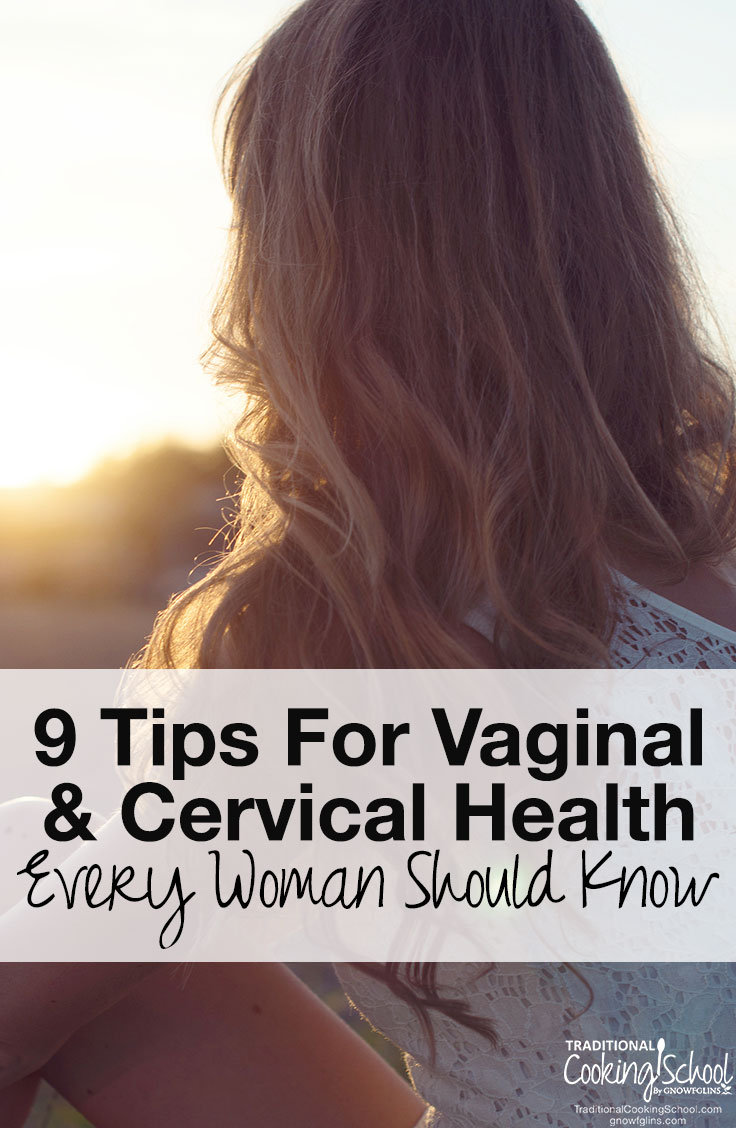
How often should you have a Pap test? How contagious is HPV? Is cervical cancer a real threat?
This post is for women. We will explore these serious questions along with more commonplace ones.
We all have different levels of comfort with our bodies. And yet, knowledge and proper care of our female reproductive organs is as vital to our overall wellness as any other area of healthcare.
Here are 9 tips for your vaginal and cervical health:
Tip #1 — Have a Pap test every 3 years.
When I was 18 years old, I was advised to have a Pap test every year. That recommendation has changed. It is now recommended that women ages 21 and older have Pap tests every 3 years (source and source).
A Pap test screens for indications of the presence of human papilloma virus (HPV), such as abnormal cell growth. HPV is a sexually transmitted disease that now affects 70% of women. It has many benign strains that easily resolve themselves.
However, 2 strains of HPV can lead to cervical cancer. If abnormal cell growth is caught early, treatment is highly effective.
It is recommended that even monogamous women, or women who aren’t sexually active, have the Pap test every 3 years. In very rare cases, cervical cancer and HPV can still present itself.
Tip #2 — Know the sexual history of your partner.
HPV is highly contagious during sexual intercourse, even when a condom is used.
Recently my 14-year-old daughter went to our pediatrician for a well-visit. We’re in the process of an international adoption, and it is required that all of our children see a medical pediatrician.
We were told to get the “cervical cancer vaccine” and that my daughter could get cervical cancer just by touching someone’s hand at her high school!
I went home to do my research, as my daughter was totally “freaked out” and wanted the vaccine.
We confirmed the following: Cervical cancer cannot be caught. It evolves from 2 strains of HPV, as mentioned above.
Perhaps our pediatrician intended to say that my daughter could contract HPV from a handshake.
Is this true? While extremely unlikely, it is theoretically possible. Someone infected with HPV could have it on their fingertips, though there are no known cases of the virus being transferred this way. In all known cases, HPV has been transferred by a sexual encounter. (Source and source.)
(As humorous and obvious as it may sound, a sub-tip might read: “Wash your hands after touching strangers and before touching your genital region.”) 😉
So, why does one need to know the complete history of one’s sexual partner?
HPV and other STDs can lie dormant for years before potentially manifesting symptoms (source).
To read more about HPV, the vaccine that may prevent it, and cervical cancer in general, this post goes into greater detail.
Tip #3 — Use general self-care principles to prevent disease.
HPV can hibernate in the body for decades. It can remain harmless; it can also lead to abnormal cell growth.
It may come as a surprise, but the best way to prevent abnormal cell growth is through proper nutrition, sleep, exercise and reduction of stress (source)!
Conversely, addictive behaviors, like smoking, increase one’s chance of precancerous or cancerous growths by weakening the immune system (source).
Tip #4 — If you struggle with vaginal yeast infections or urinary tract infections, use probiotics and herbs to heal.
Nothing fights an imbalance of invasive bacteria better than good flora and natural remedies. Probiotic and herbal suppositories can restore balance when over-the-counter products don’t even begin to heal the cause! Read more about these methods here.
Urinary tract infections are an overgrowth of bacteria in the bladder or urethra. Use herbs to remove that bacteria — they are effective and efficient. Here are some other troubleshooting strategies as well.
Tip #5 — Sleep without underwear.
Fresh air is good everywhere, for everyone! If you’re comfortable adapting your sleepwear, the best way to dress for bed is to dress down.
Yeast and bacteria are more likely to grow when underwear is worn around the clock. This is especially true if underwear is made of synthetic fabrics, silk, or lace. Organic, un-dyed cotton is the best material.
Loose fit clothing and skirts are best for vaginal health for the same reasons (source).
Tip #6 — Switch from tampons to sponges, washable pads, or cups.
Tampons and large pads — especially those made of bleached, conventional cotton — add to the waste in landfills and pesticide run-off. They also endanger a woman’s health through exposure to bleaching chemicals like dioxin.
Large pads, made of plastics, cut off air flow and can cause infection.
Tampons disrupt the balance of good flora. They can also lead to Toxic Shock Syndrome and disrupt the normal pH of the vagina, which can lead to bacterial overgrowth (source and source).
Sponges and cups serve as more natural alternatives. Learn more about cups and sponges here.
Tip #7 — Pee before and after sexual intercourse.
This simple practice helps to prevent urinary tract infections. UTIs can occur when germs are pushed into the urethra during sexual intercourse. Peeing cleanses the area and is extremely effective in preventing infection.
You should also pee after sex to help expel any semen (if condoms aren’t used). Semen has a basic pH, whereas the vagina is acidic. When semen is left in the vagina after sex, it upsets the pH balance and leaves the vagina more vulnerable to bacteria and yeast overgrowth.
Tip #8 — Wash with only water.
The vagina’s pH is disrupted by soaps, sprays, wipes, or practices like douching. The vagina is also self-cleaning. It’s an internal organ that needs special attention only if the balance has already been disrupted!
Warm water and no soap is the best way to wash.
Tip #9 — Choose birth control methods that support your overall wellness and your vaginal and cervical health.
Hands down, the best form of birth control for your body is Natural Family Planning as outlined in Toni Weschler’s entertaining book Taking Charge of Your Fertility. She teaches you to know your body’s cycle — with humor, respect, and thoroughness.
If avoiding pregnancy is especially important, her natural birth control method can be combined with the use of a diaphragm or condoms.
However, I warn against one of the more popular forms of birth control: the copper intrauterine device (IUD).
Many think that IUDs work by telling the body that it is already pregnant, thus preventing the implantation of a fertilized egg. In reality, IUDs mainly work by emitting copper. Copper is a natural spermicide. (Source and source.)
Regular amounts of copper in one’s system require increased levels of zinc. It becomes a slippery slope to try to balance one’s metals (source).
There are many other health complications that can result from IUDs including cysts, perforation, embedment, expulsion, infection, and disease.
In short, IUDs are not a natural choice for birth control. The risks far outweigh the convenience and effectiveness that IUDs provide.
In what ways are you proactive about your vaginal and cervical health? Have these tips been helpful?
...without giving up the foods you love or spending all day in the kitchen!

2 free books:
Eat God's Way
Ditch the Standard American Diet, get healthier & happier, and save money on groceries...
We only recommend products and services we wholeheartedly endorse. This post may contain special links through which we earn a small commission if you make a purchase (though your price is the same).


I am 66 years old, how often should an older woman have a check up?
Most sources say every 3 years. Some sources say every 5 years is fine for a 66-year-old woman, especially if monogamous, with no prior complications.
Ine infected with HPV does it mean that one lives with it through her life?
Relapses of the virus can occur. Good general health, including keeping stress low, helps to prevent a relapse.